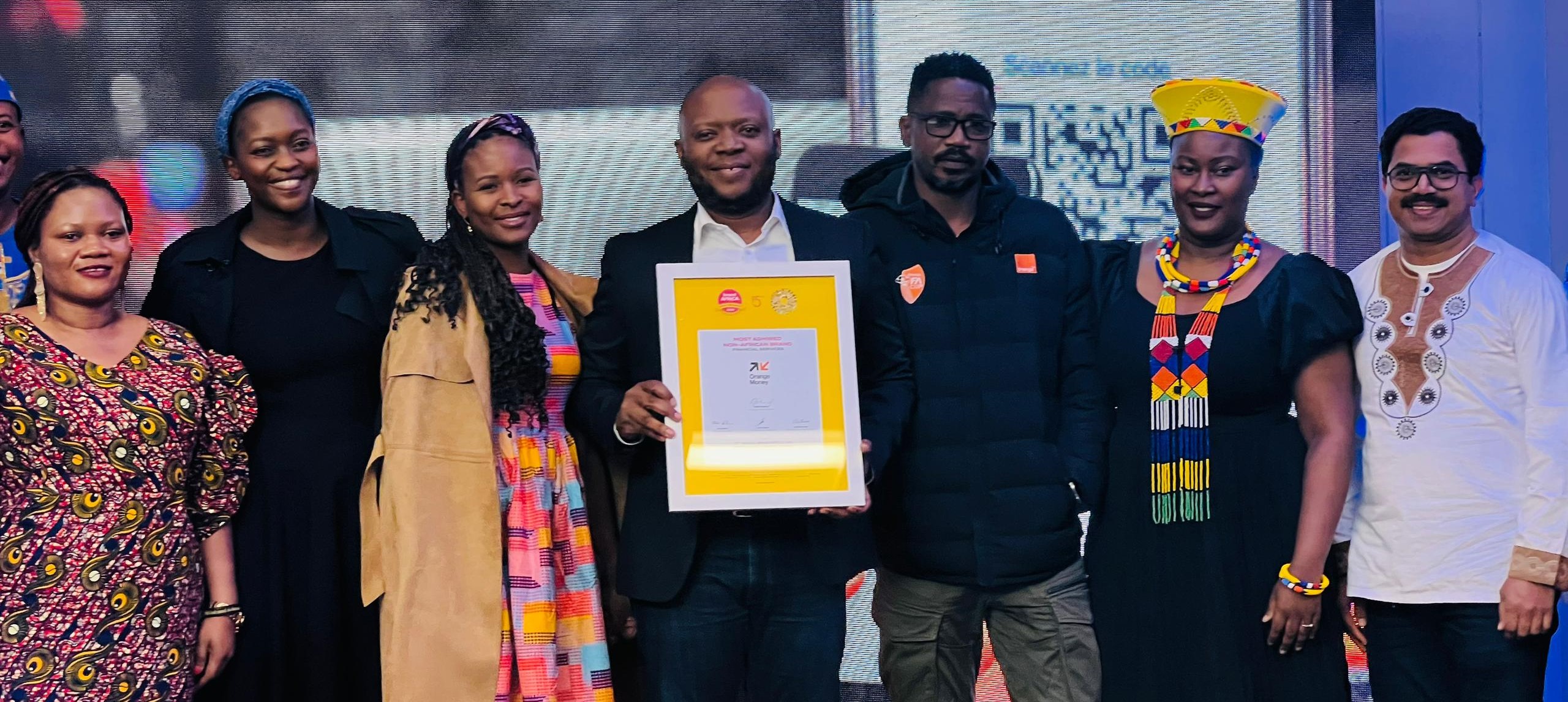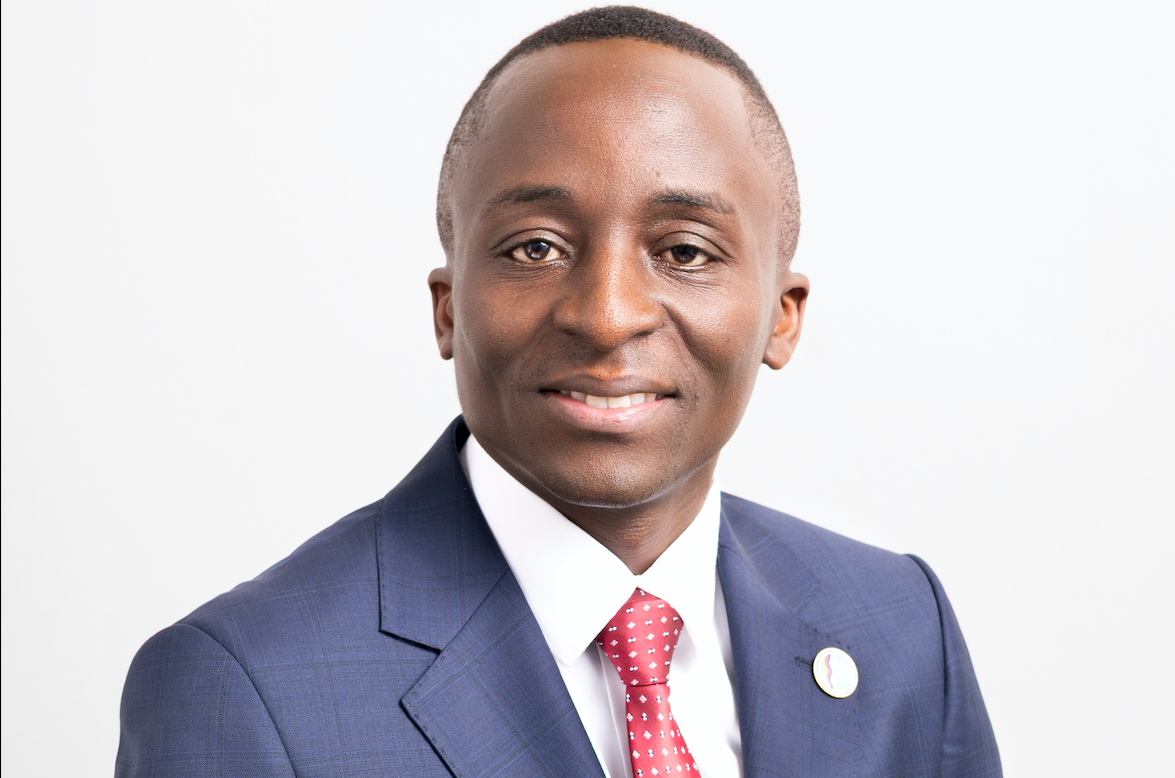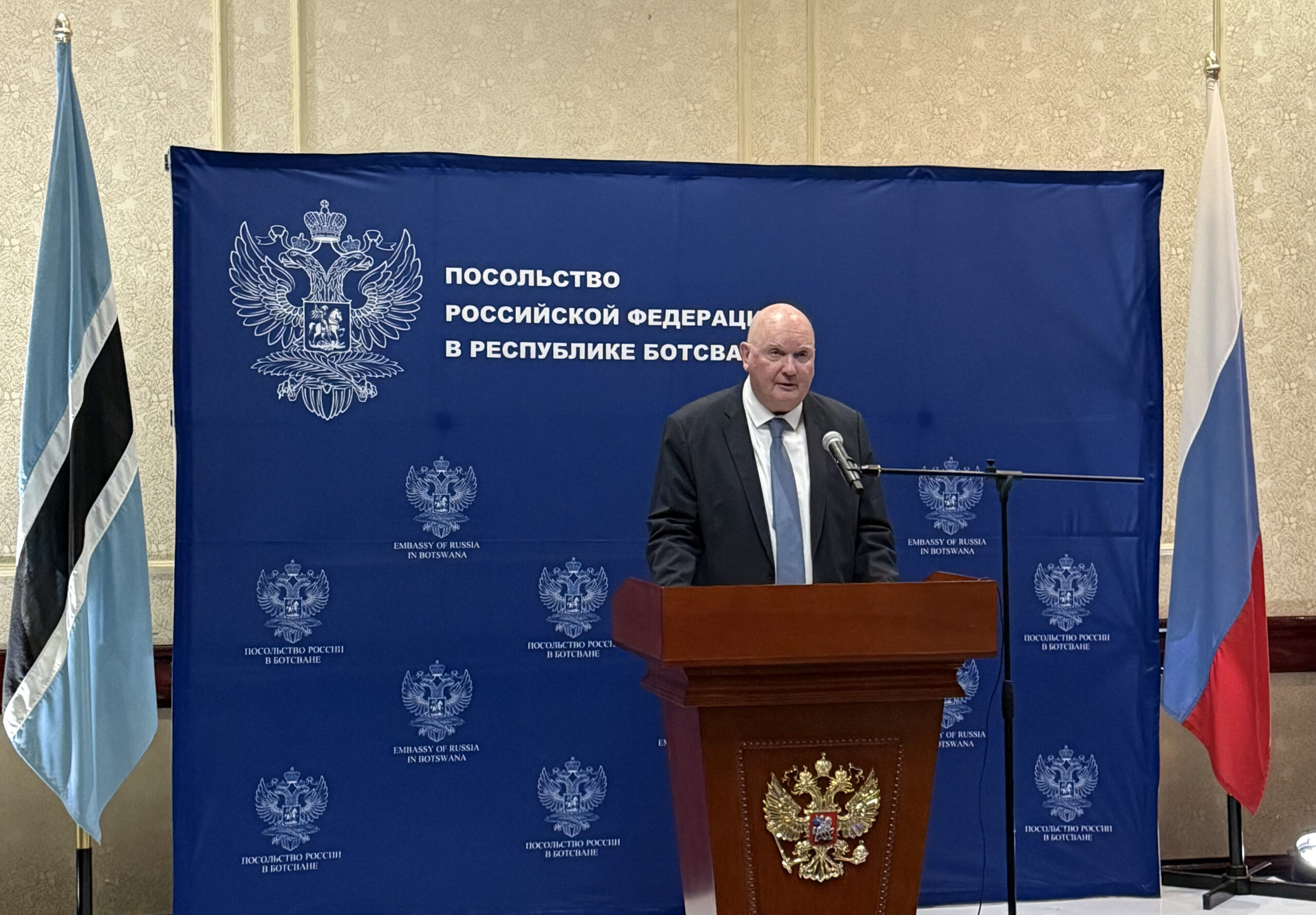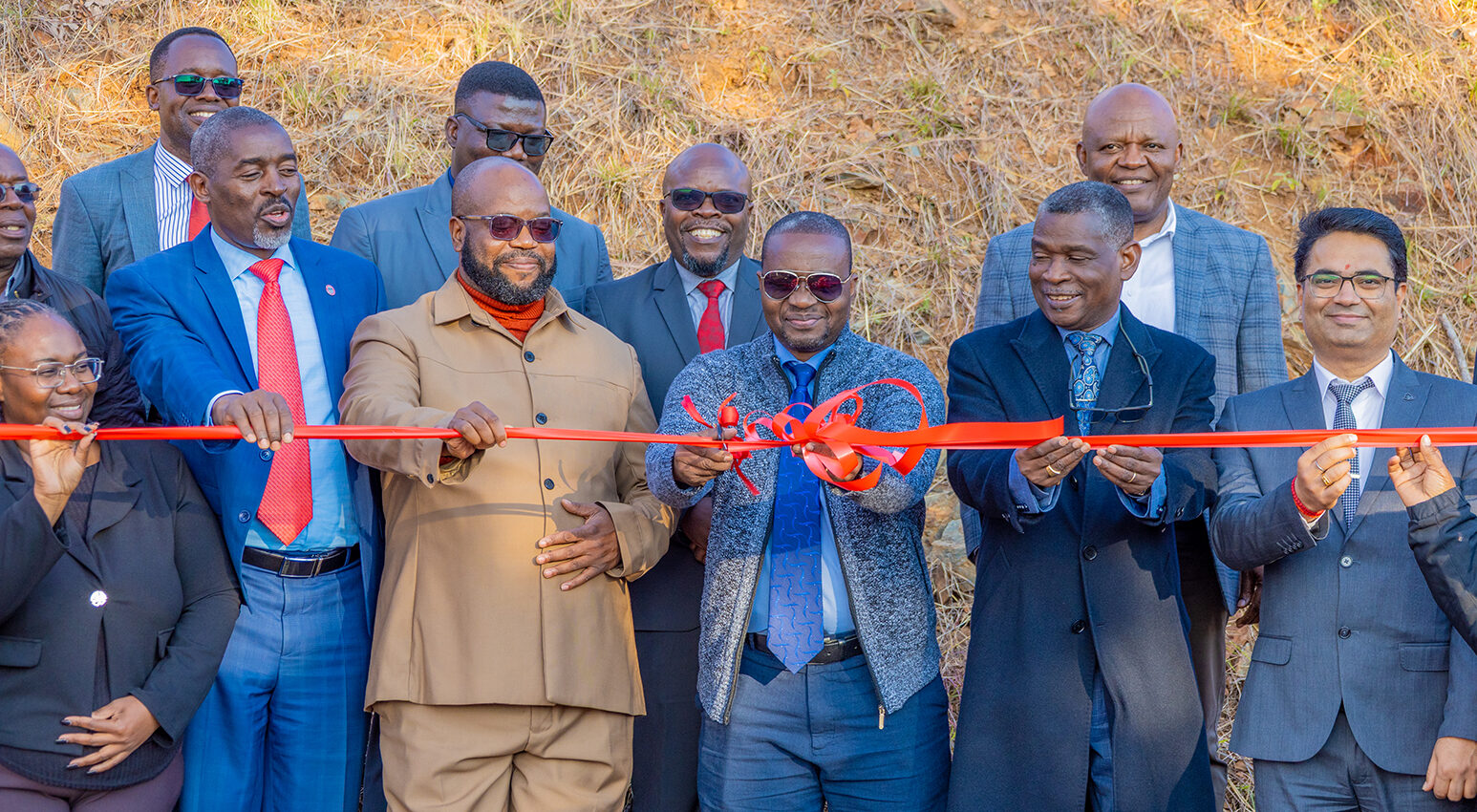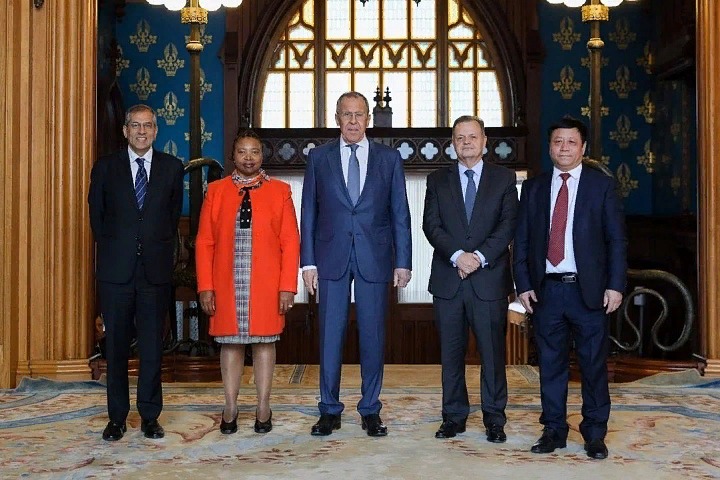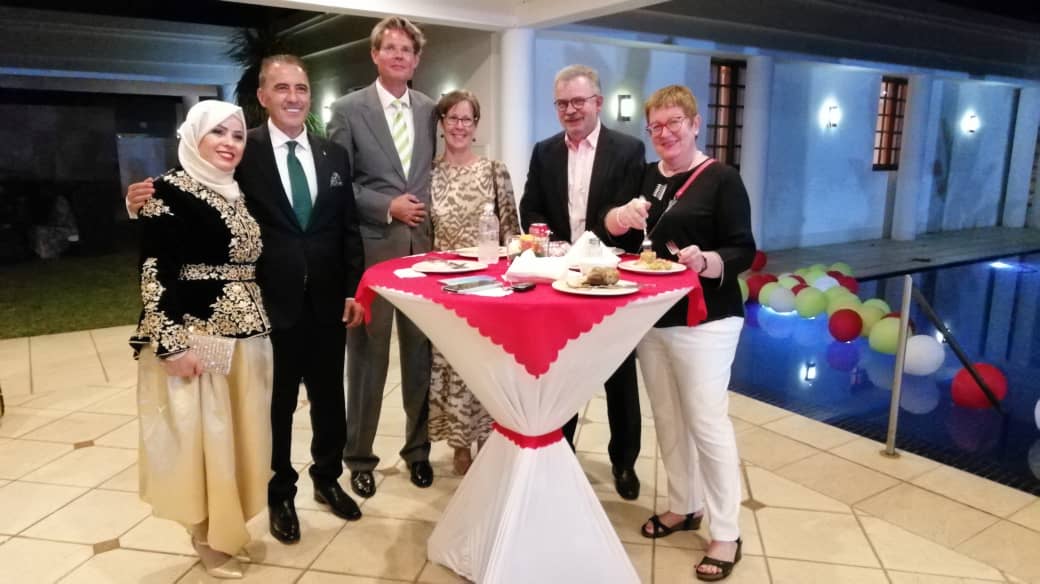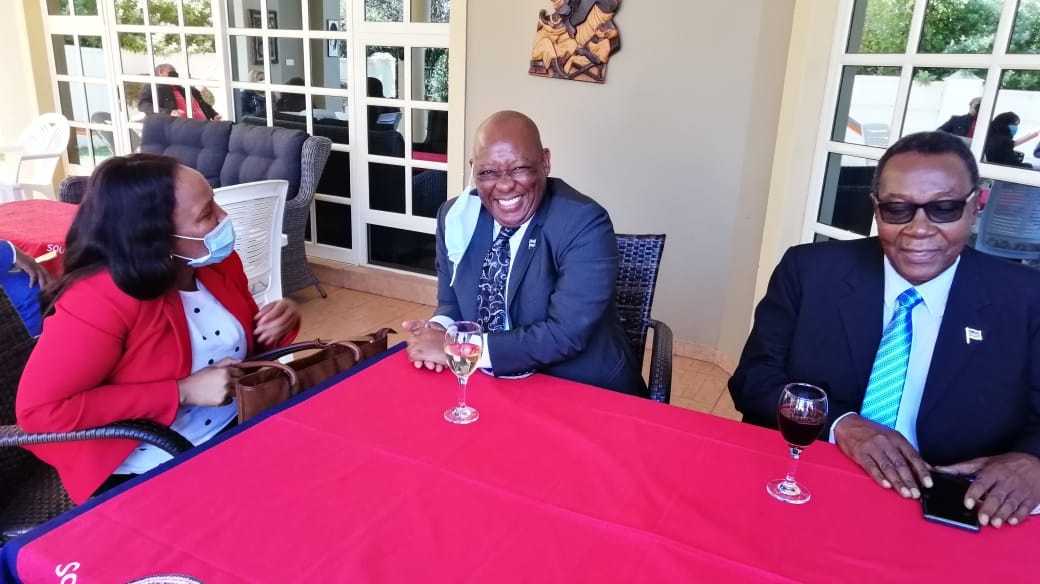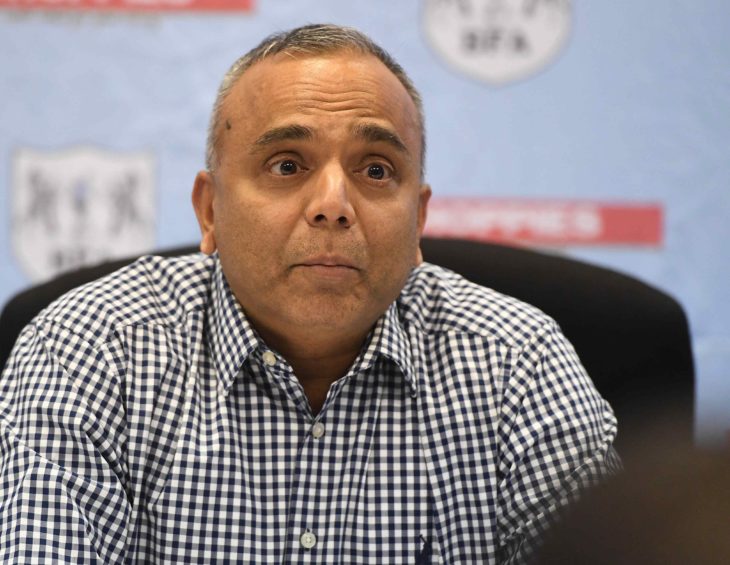
Her Excellency Margit Hellwig-Botte, German Ambassador to Botswana
“It is not possible to stop people from being free, from speaking their minds and from shaping their own destiny the way they want it – nowhere in the world.”
Her Excellency Margit Hellwig-Botte, German Ambassador to Botswana.
Last week was Botswana’s 55th Independence anniversary, an opportunity for the nation to reflect. This week is the 31st anniversary of German Unity Day. Botswana and Germany’s bilateral relations go back to 1967.

I had a conversation with the German Ambassador to Botswana, Her Excellency Margit Hellwig-Botte about what we may learn from German Unity Day as Batswana reflect on their own 55 years of unity. This conversation was conducted with gratitude to the Upright African Movement.
DM: This October, Germany commemorates the 31st anniversary of German reunification. What happened on this historic day?
MHB: In November 1989 the people of East Germany managed to take down the Berlin Wall in a peaceful revolution. They took to the streets and forced the East German Government to open the borders so that people could move freely. In that situation full of international political tension, Germans were very lucky that Mikhail Gorbachev, then President of the Soviet Union, accepted the new developments and did not send troops to keep the former East German Government in power.
In the wake of these developments, the West German Government was able to convince their Western partners, the US, France, and Great Britain, to accept the reunification of East and West Germany as one united country again. On 3rd October 1990, this reunification was formally concluded, the Cold War came to an end, and the division of Europe became history. That is what we celebrate on the Day of German Unity.
DM: What can Batswana, and indeed the world, learn from this historic and historical event?
MHB: For me, there are two lessons to be learned, that it is possible to change the world peacefully through constant dialogue, perseverance, and the will of the people. The second lesson is that it is not possible to stop people from being free, from speaking their minds, and from shaping their own destiny the way they want it – nowhere in the world.
DM: This year October 3 coincides with a closely contested election season in Germany. Does this in any way change the way you are commemorating the day this year?
MHB: It doesn’t. We always celebrate German unity and not the German government. An election and a foreseeable change of government do not change anything for Germany‘s unity and stability and for the values and principles we stand for as a people.
DM: Well, this year’s German elections and their outcome are quite unprecedented. The calculus that requires three parties to form a coalition gives unusual power to the two smaller parties in Germany namely the Greens and the Free Democrats. What do you predict will follow this unprecedented scenario?
MHB: Elections are part of the democratic process of finding the government the people in Germany want for the next four years. This time, the electorate made it difficult for the politicians because for the first time three parties have to agree on a common programme for the new government.
So it may take a while before a coalition government will be put together, but I am very confident that the parties will get there. And meanwhile the old government remains in charge as a caretaker government so there will be no political vacuum.
DM: Your Excellency, the German Embassy in Gaborone is a result of diplomatic relations between Botswana and Germany going back to our independence era. What does the relationship between the two countries look like today?
MHB: The German Embassy in Botswana started operations as early as 1967, shortly after the country became independent. Germany was among the first countries to recognise Botswana and send an Ambassador to Gaborone. So ever since, we have enjoyed a very good bilateral relationship.
One of the cooperation projects we have today is on vocational training: the German Mechanical Engineering Association VDMA and the Botswana Chamber of Mines are partners in training young people in mechatronics, hydraulics and some other jobs which are relevant for the mining industries.
DM: At the Upright African Movement education reform is our focus. What has your office done to facilitate a cross-pollination of skills between Botswana and German learners?
MHB: Universities in Germany and Botswana are partnering in cooperation projects, for example, the University of Botswana and Technical University Berlin work together on spatial methods for urban development and city planning, and Botho University and Dual University Baden-Württemberg run joint study programmes on hospitality and sustainable tourism.
DM: Are there any other areas of interest between the two countries that a Motswana reading this should know?
MHB: Another area of common interest between Germany and Botswana is our cooperation on regional integration: Alongside the European Union, Germany is the biggest supporter of SADC programmes which make people benefit from better access to water, faster and safer transport of goods across borders, and from more market integration. After 41 years there is finally a Motswana, Elias Magosi, at the helm of the SADC Secretariat, and I am very much looking forward to this cooperation too.
DM: Your Excellency, how are you and your staff at the Embassy commemorating German Unity Day this year?
MHB: Let me, first of all, say that despite the fun we had in putting together a video to commemorate the Day of German Unity, I would have preferred to celebrate with all our friends and partners from Botswana in the garden of the Residence. But, as we all know, due to the pandemic that was not possible.
There were no live celebrations in Germany and no parties at German Missions abroad. So, much like last year, our creativity was required to put together something meaningful to commemorate the day while, at the same time, enjoying ourselves and, hopefully, make our audiences enjoy the video too.
DM: What was it like, the experience of executing the video-digital celebrations of German Unity Day this year?
MHG: What I enjoyed most, was the singing of the National Anthems. It was such a great experience to have Germans and Batswana sing both their Anthems, learning together, teaching each other, and then performing together. Of course, without the professional support of opera singers Tshenolo Batshogile and Henry Nyatshane we would not have managed, and the professional filming of NIO Visuals helped a lot to conceal whatever we got wrong. But who knows, maybe, after this one month-long exercise of singing, we have the nucleus of a German Residence Choir now!
